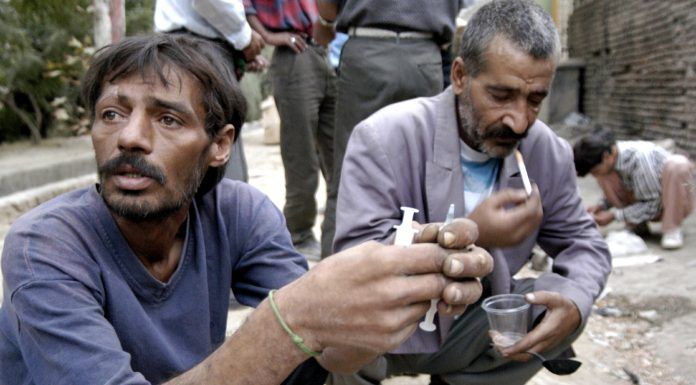State institutions responsible for informing and educating the public have refused to acknowledge or address the rising number of AIDS cases among young adults in the country, Iranian Labor News Agency (ILNA) has reported, citing Dr. Minoo Mohraz, the director of the Iranian Research Center for HIV/AIDS (IRCHAO) Tehran University of Medical Sciences (TUMS.)
“Officials at the Ministry of Education consider any school program that aims to inform young people about the spread and prevention of HIV/AIDS as immoral education,” Dr. Mohraz explained. “They prefer to avoid the topic altogether, which is counterproductive and harmful. Officials at the ministry have ignored repeated calls by health officials for a comprehensive HIV prevention education program in schools.”
Dr. Mohraz pointed out: “A large segment of the country’s young adult population is dangerously ignorant about the disease, because schools don’t provide even a basic HIV/AIDS prevention program. Some officials argue that informing and educating young people about the disease could lead to reckless behavior.”
“The disease has affected many families. We’ve seen cases of old married couples with grown-up children who’ve been diagnosed with HIV. Only 3 percent of those living with AIDS were women until a few years ago, but that figure has recently increased significantly,” Dr. Mohraz noted. “Prostitution, recreational sex, and extramarital relationships have contributed to the rise of HIV infection among women. However, most of those living with AIDS are not promiscuous. Their husbands infected nearly 45 percent of women who tested positive for HIV in 2018.”
Dr. Mohraz said: “Even married couples are poorly informed about HIV prevention. We have failed in our duty to educate them, and that’s why many married people don’t know how to practice safe sex. There is a stigma attached to the disease, and that’s why many people with HIV are reluctant to talk about their condition. They are afraid of being judged, because AIDS is associated with high-risk behavior.”
“Fortunately, we are not facing a shortage of HIV antiviral medication, and we don’t expect any problems for the foreseeable future,” Dr. Mohraz explained.
According to a report by the Health Ministry, 61.7 percent of recorded HIV cases since 1986 have been caused by needle sharing, 20.3 infected by sex, 1.5 percent by transmission from mothers to infants, and 16.3 percent by undetermined sources. Two-tenths of a percent of those with HIV/AIDS reportedly contracted the virus from contaminated blood.
Translated from Persian by Fardine Hamidi



